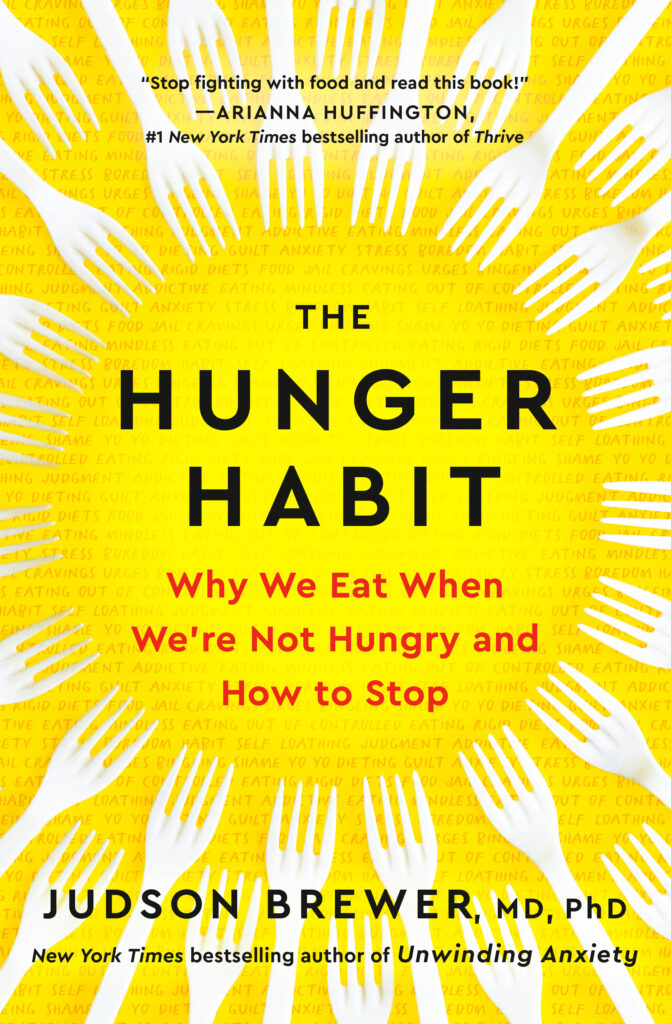HOW MINDFUL ARE YOU WHEN YOU EAT?
Have you noticed that when you start eating a meal or a snack, you pay the most attention to the first bite or two and then your brain quickly loses interest and focuses on other things? Why is that? This is your brain being efficient. It tunes in when you first start eating to make sure your food isn’t spoiled or rotten. Once your brain gives the “all good here” signal, you can stop paying attention to the food and go back to the conversation you were having, the book you were reading, the show you were watching, or the work you were doing and not give your food another thought.
While not as old as our evolutionary mechanisms for setting up habits, the concept of mindfulness is rooted in Buddhist psychology and dates back thousands of years. Often mindfulness gets mythologized into some rarefied state that only gurus and monks can attain. That is not the case. We all have the ability to be curiously aware at any moment. It’s more a matter of waking up to what’s happening right now and then remembering how much better it feels to be aware than unaware.
MINDFUL EATING IN THE REAL WORLD
About a year ago, someone posted this question on our eating program’s online community:
I work as a live–in caregiver. I work ten–to fourteen-hour shifts, so I’ve been struggling with mindfulness. If I really pay attention to my meal, it can take upwards of half an hour to finish it. I feel like I really just don’t have the time to spend so long on meals/snacks.
Another person asked, “I only have about twenty-five minutes to eat lunch. How do I take each bite mindfully?”
Someone else pointed out: “I’m finding it difficult to do the mindfulness work when I only have a fifteen-minute break to make and eat my lunch.”
The fear is that if they aren’t eating slowly, they aren’t—or can’t be—eating mindfully. “Mindfulness = doing things slowly” can become a rule our brains try to follow and then use to judge ourselves when we don’t.
I get it. If you look at monks in their temples or meditators on retreat, they all seem to be moving at half speed. So our brains, ever extrapolating and predicting, assume that doing things at half, or even quarter, speed is the only way mindfulness works. Well, just because a monk is walking slowly or someone is taking thirty minutes to eat a raisin doesn’t mean that is how mindfulness works.
Regardless of our personal situation and time constraints, we all have the ability to be aware. We can all be curious. And it doesn’t have to be in the form of getting to know a raisin for ten minutes before eating it. We can be aware at any moment, no matter how fast we—or our mouths—are moving.
So when someone says they have only fifteen minutes to eat, I say, “Great, you have fifteen minutes to pay attention while you eat.” If they seem squeamish about breaking the “mindfulness is chewing slowly” rule, I help them bust that myth by sharing my own not-secret: As a relatively busy guy, I have to juggle a bunch of things on a daily basis. I don’t build a lunch hour into my schedule and often have meetings booked the entire day. So sometimes—gasp!—I eat while I’m in a meeting.
You might be thinking, He didn’t just admit that. He’s the mindfulness guy. He’s writing a book about eating mindfully. He didn’t just say that he eats while doing other things. Stop reading the book. Don’t believe anything he says.
Yes, I did. I’m trying to point out that we have to work with whatever life we’ve been given. I could schedule a lunch hour. I could eat meals really slowly, but that’s not how I roll. My wife jokes that I have two speeds: fast and off. Either I’m moving quickly or I’m in bed, asleep.
However, fast doesn’t mean rushed or mindless. Moving quickly just means not moving slowly. Yes, we can move quickly and be aware that we are moving quickly. Athletes are a good example of mindfulness in movement. They have to keep their eyes on balls that are often moving at great velocities. Running backs can’t slow-roll their way into the end zone. If you’re playing softball or baseball, you can’t politely ask the pitcher to slow it down so you observe the ball coming toward you.
We can be eating quickly and aware at the same time. We can also pay attention to why we are about to eat. This takes only a moment. We check in with our urge, asking, “Why am I reaching for food right now? Am I hungry, or is it something else [boredom, stress, anxiety, loneliness, etc.]?” We can question ourselves, as the hunger test teaches us to do. The better we get at this, the faster we can gauge why we’re reaching.
Paying attention is just about remembering to put our phone, book, or other distractions away while we eat. If we’re in the middle of a meeting, this might not be possible. And that’s okay. We can pay attention to the results of what and how much we eat. That’s just as important, if not more so, than how quickly we eat or if we’re forced to eat while doing something else.
So your mission, should you choose to accept it, is to see if you can start getting in the habit of eating mindfully. Play with the experience of simply paying attention and being curious while you eat. Even if you eat only a few bites this way, it’s a very good start.



